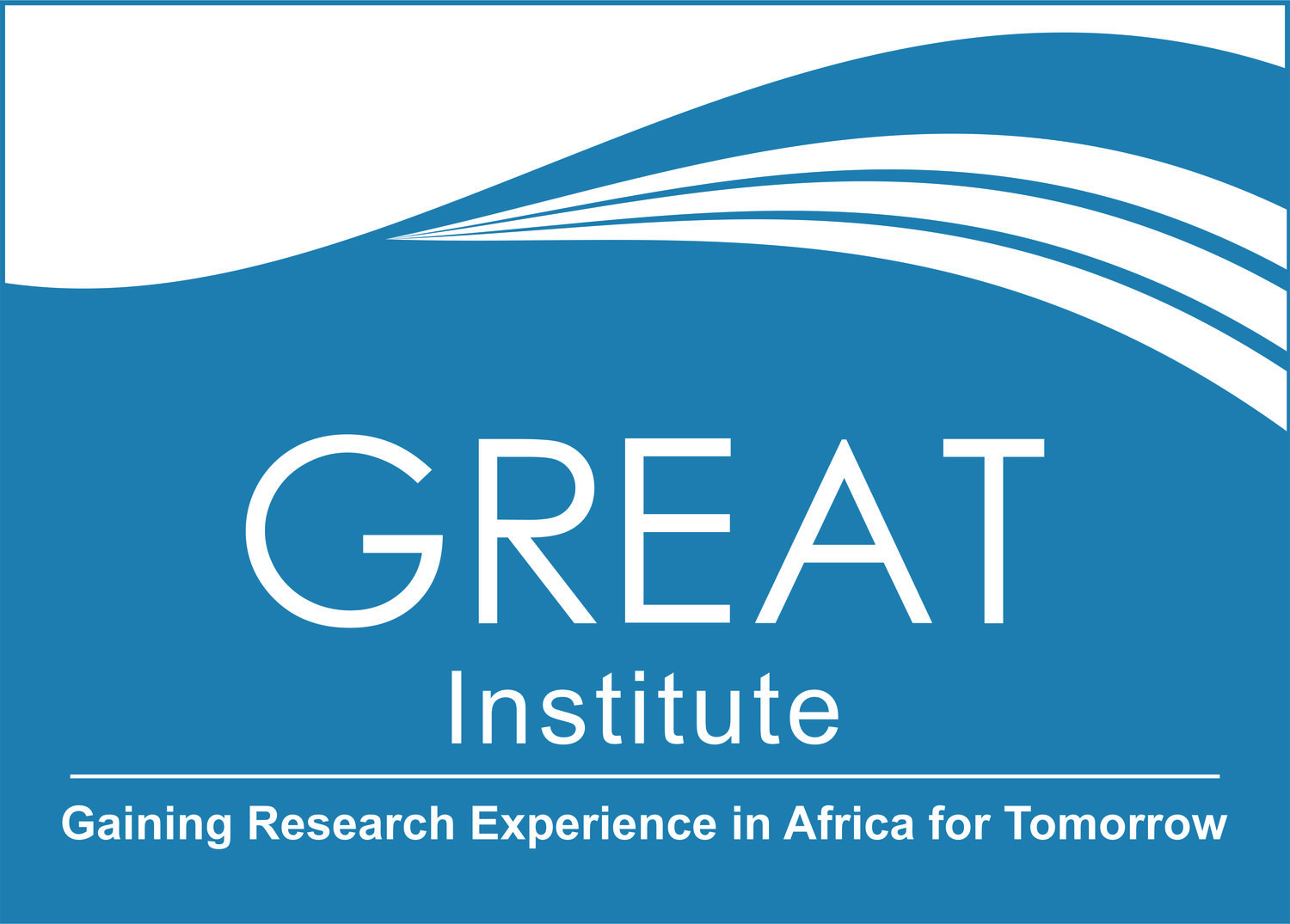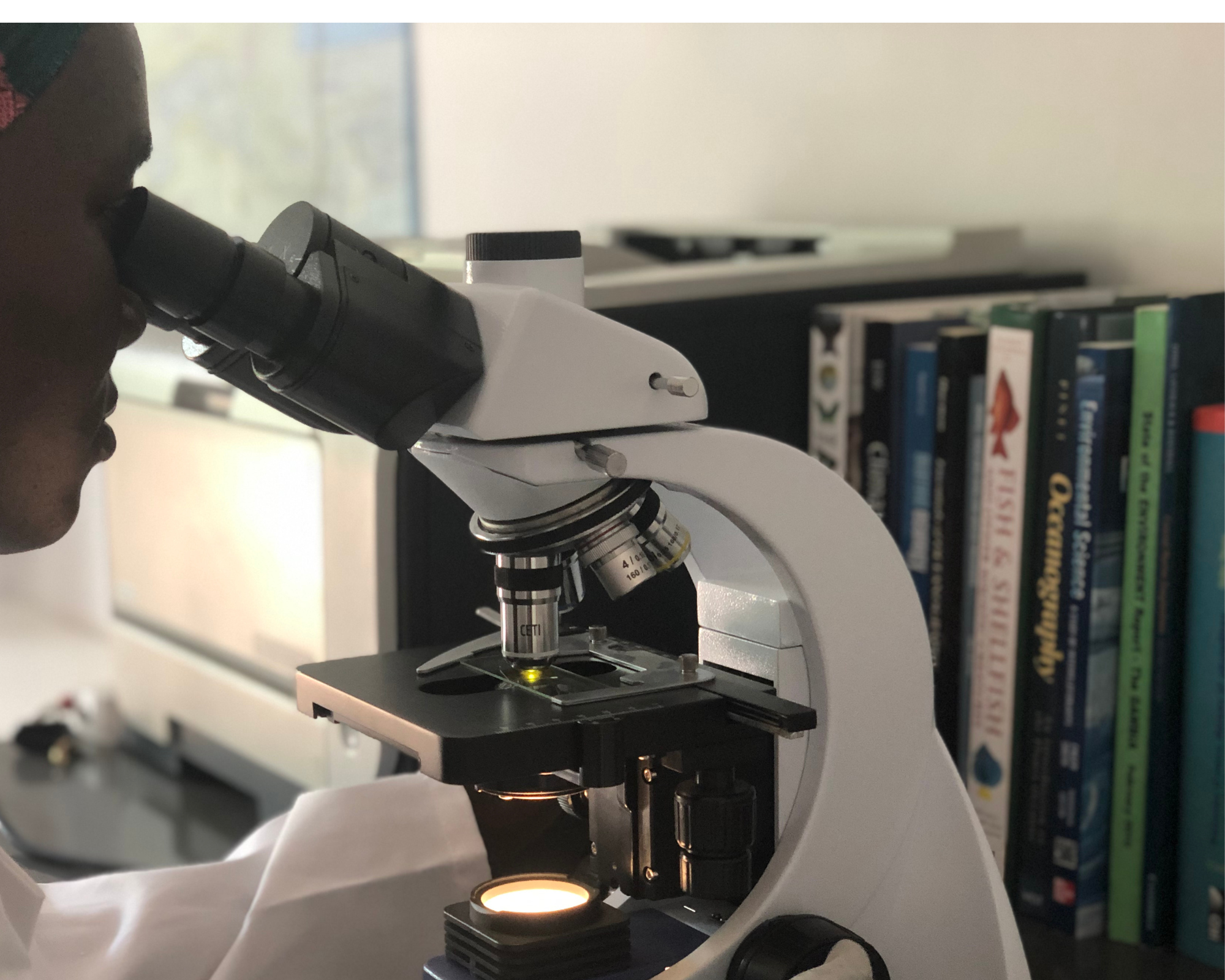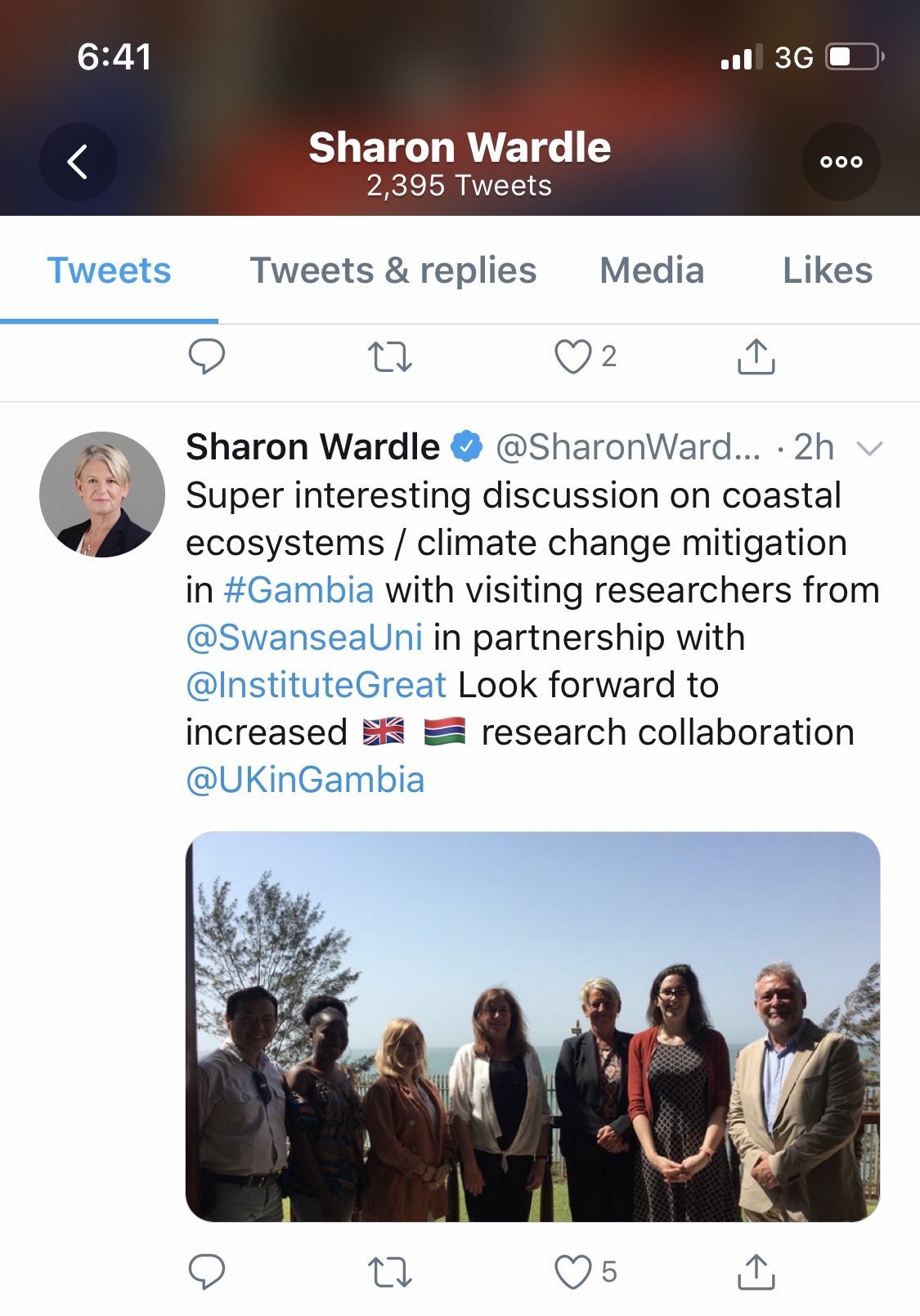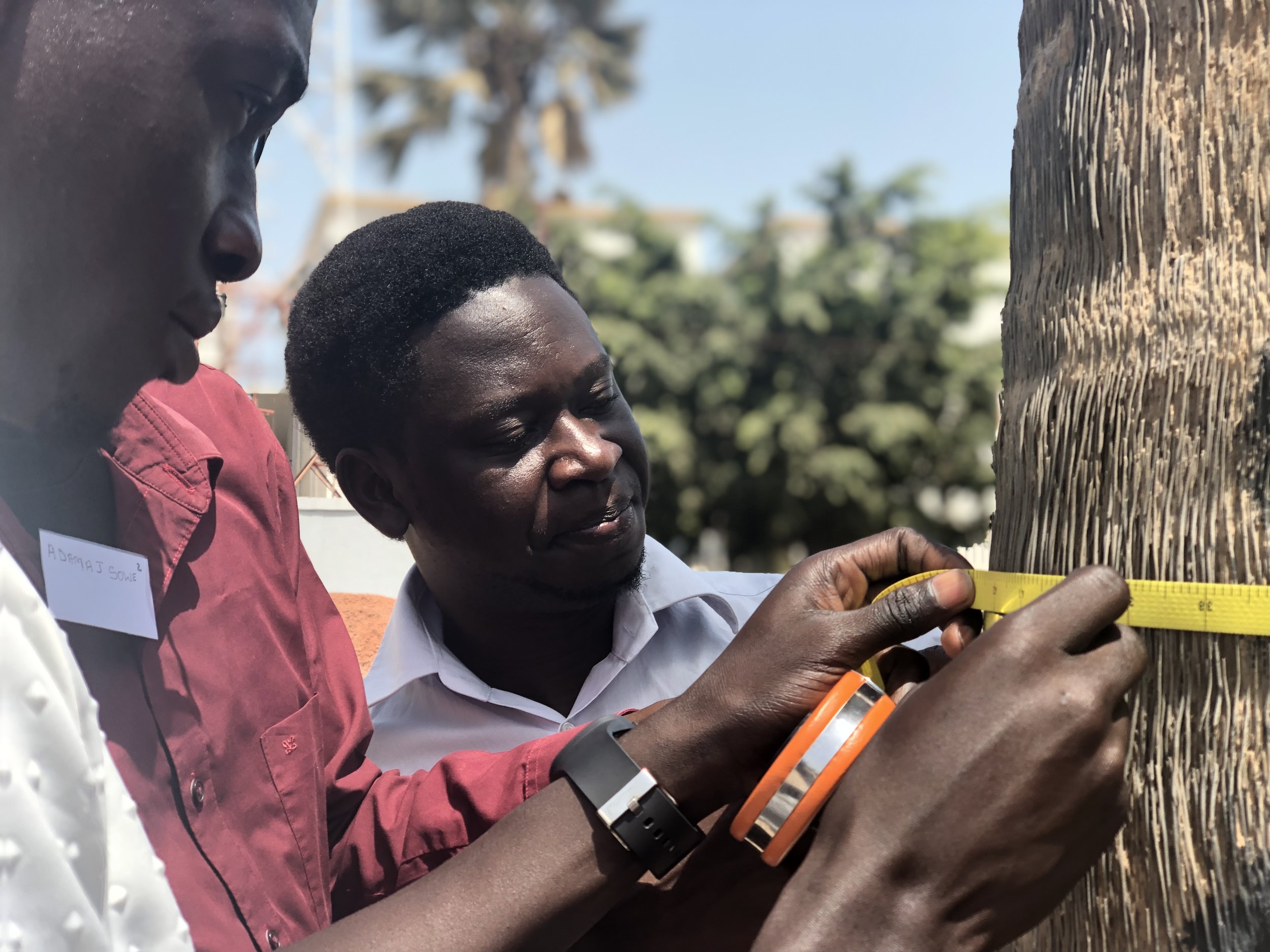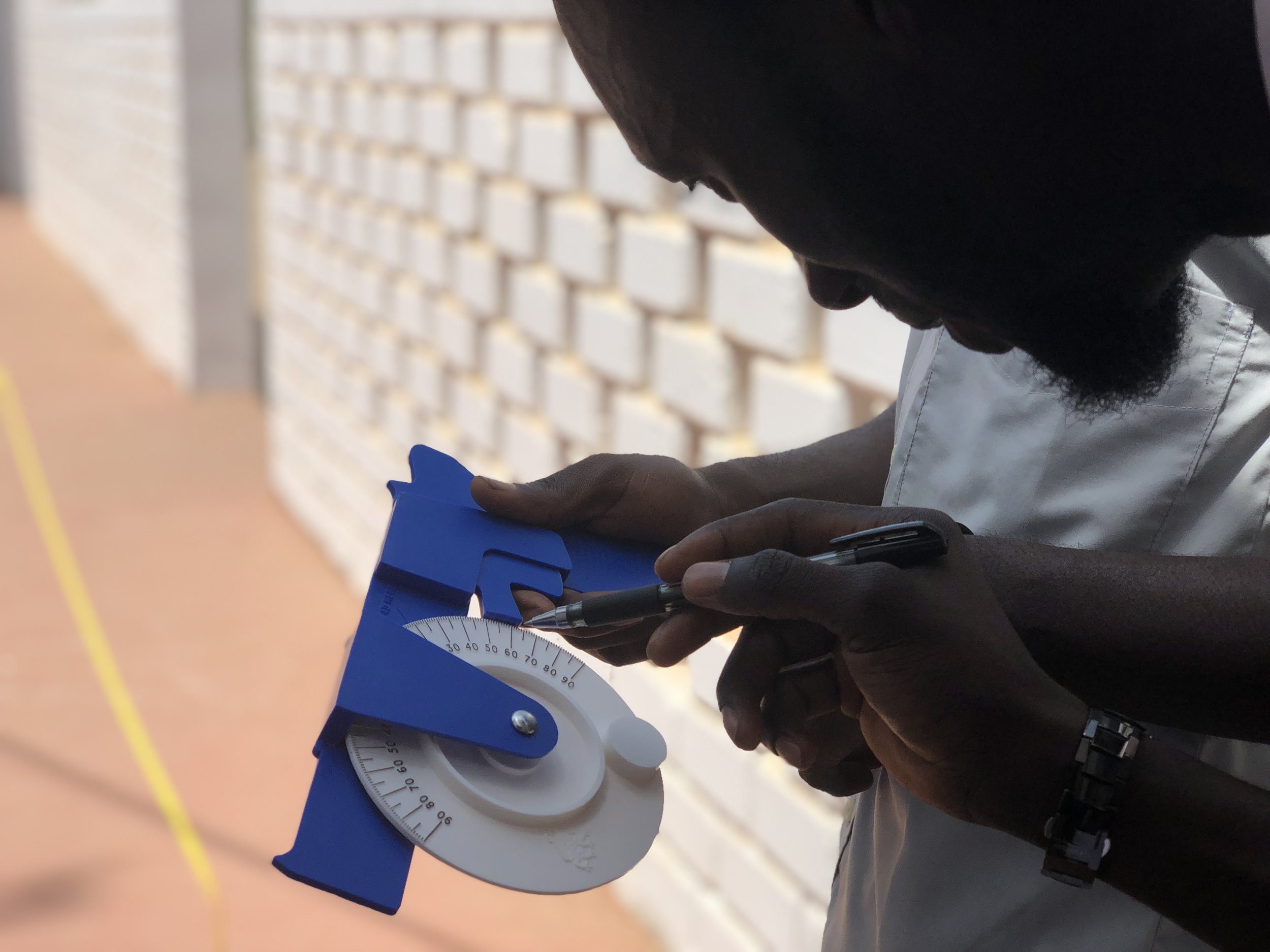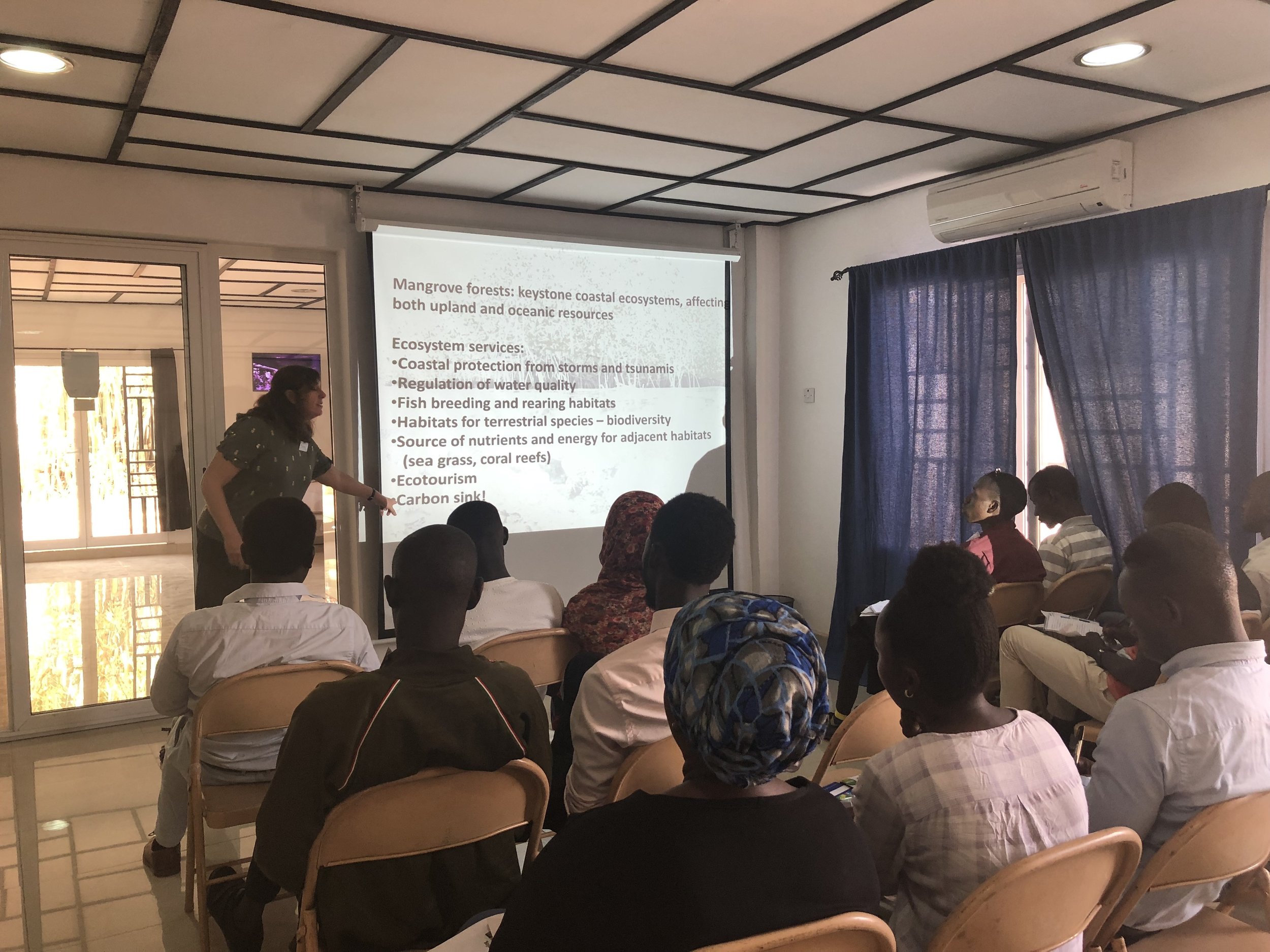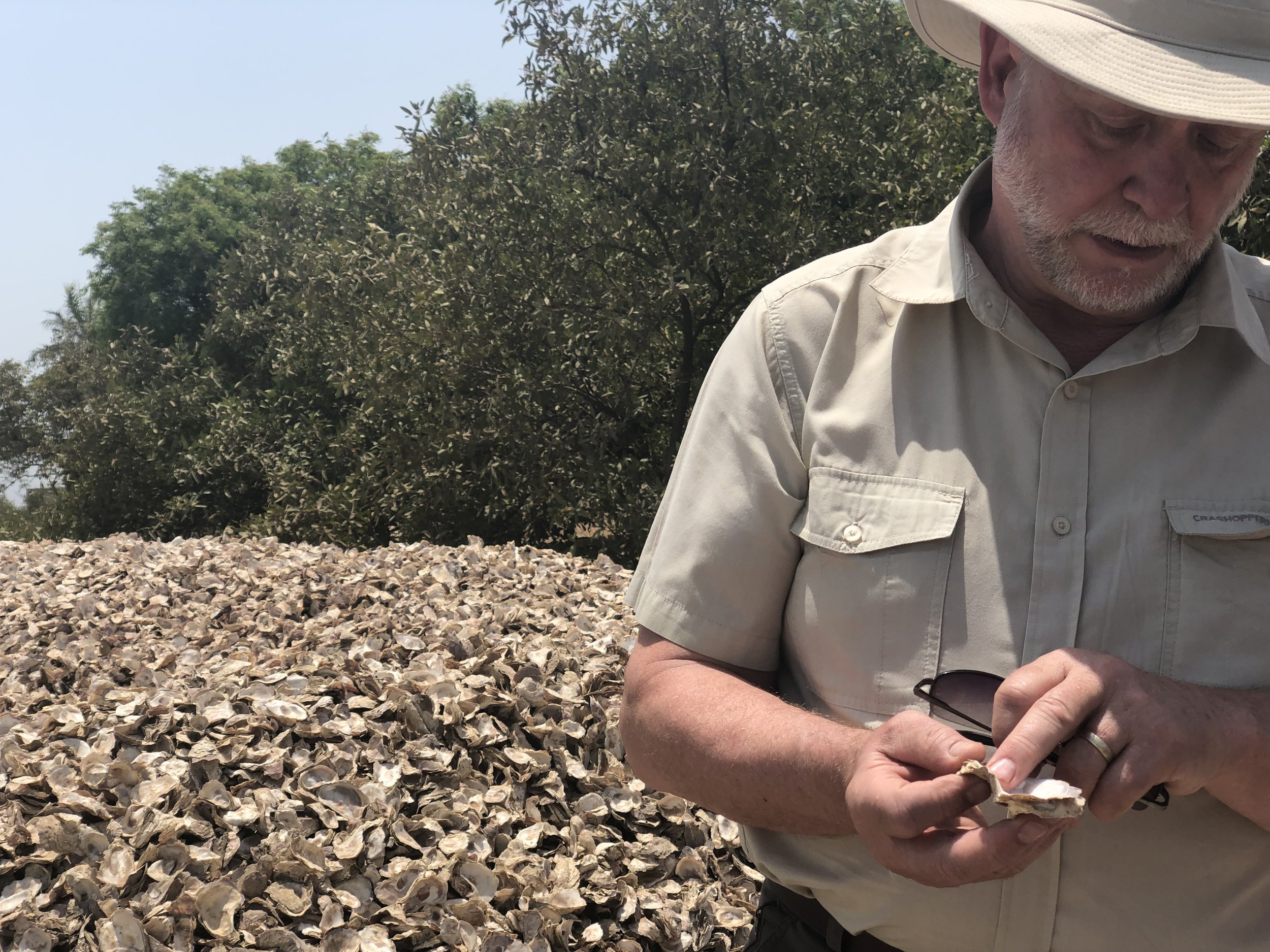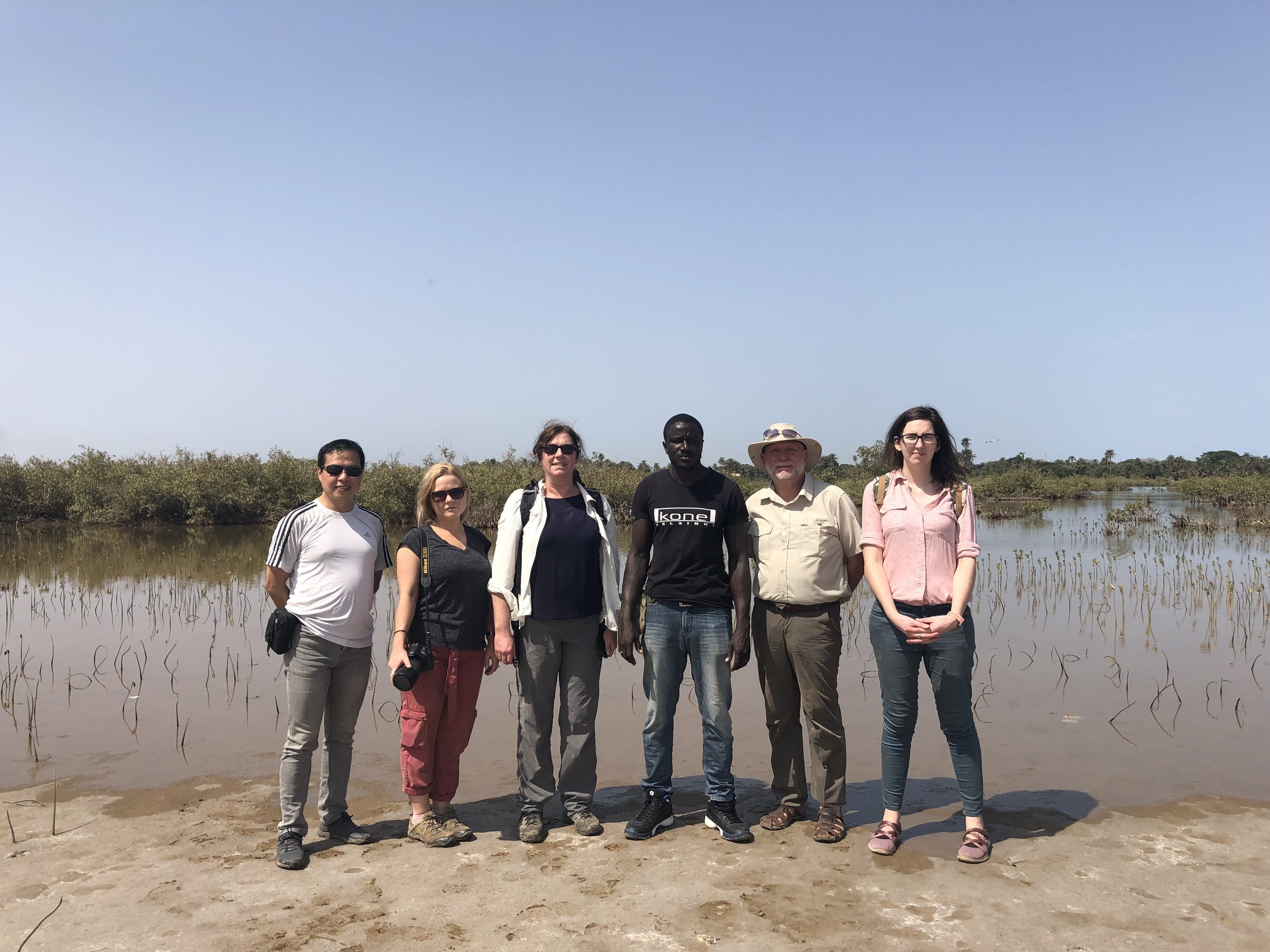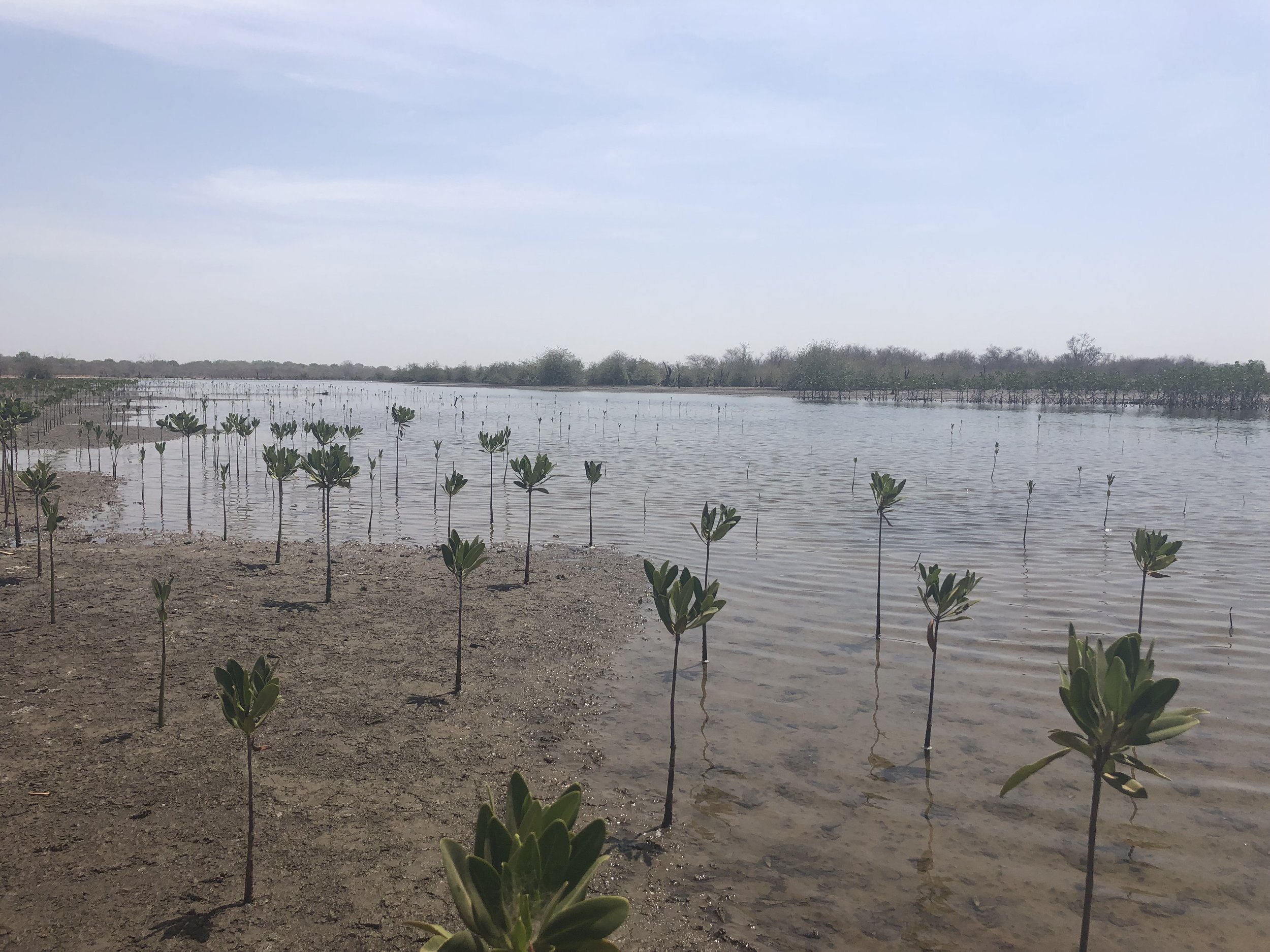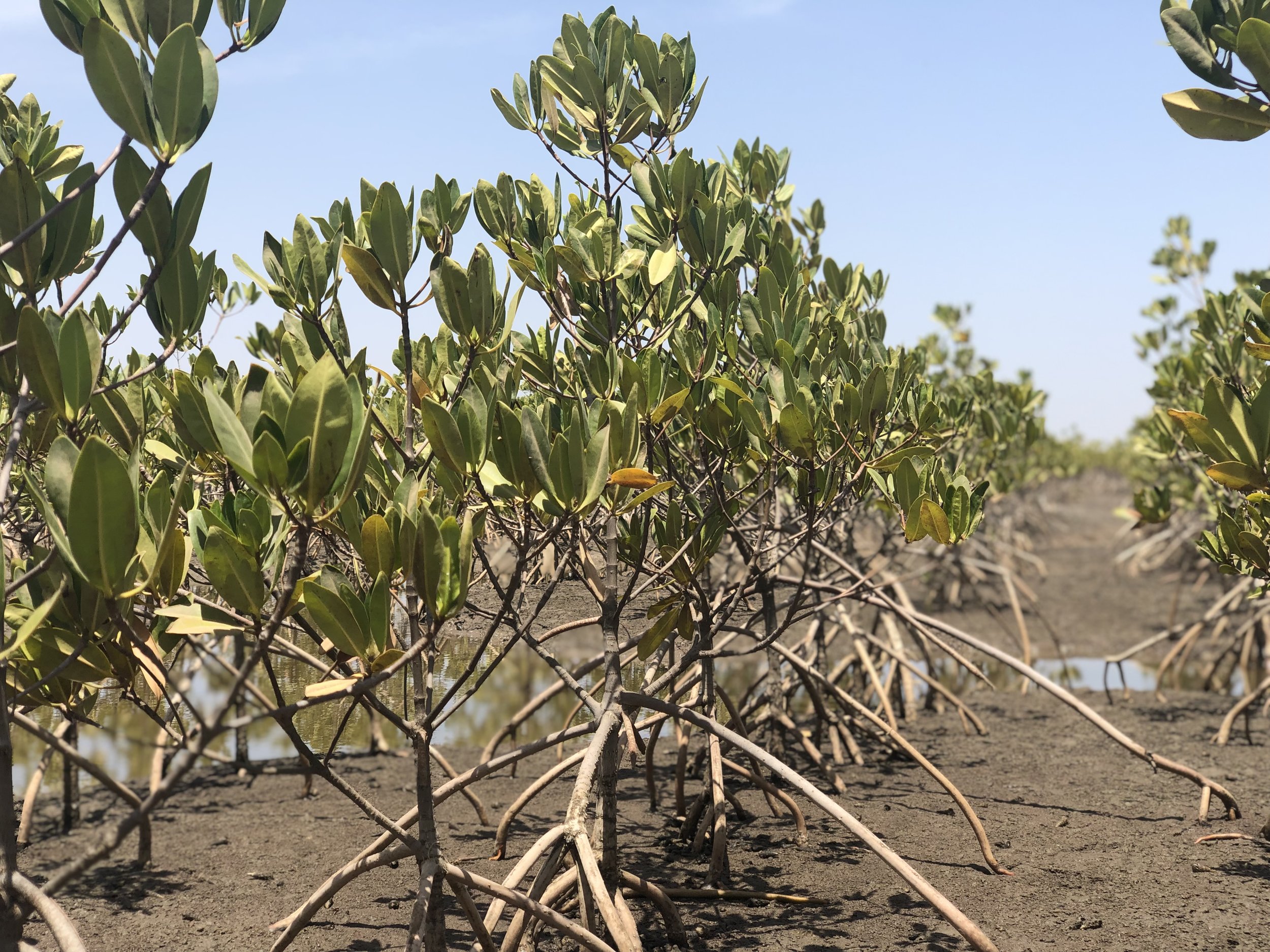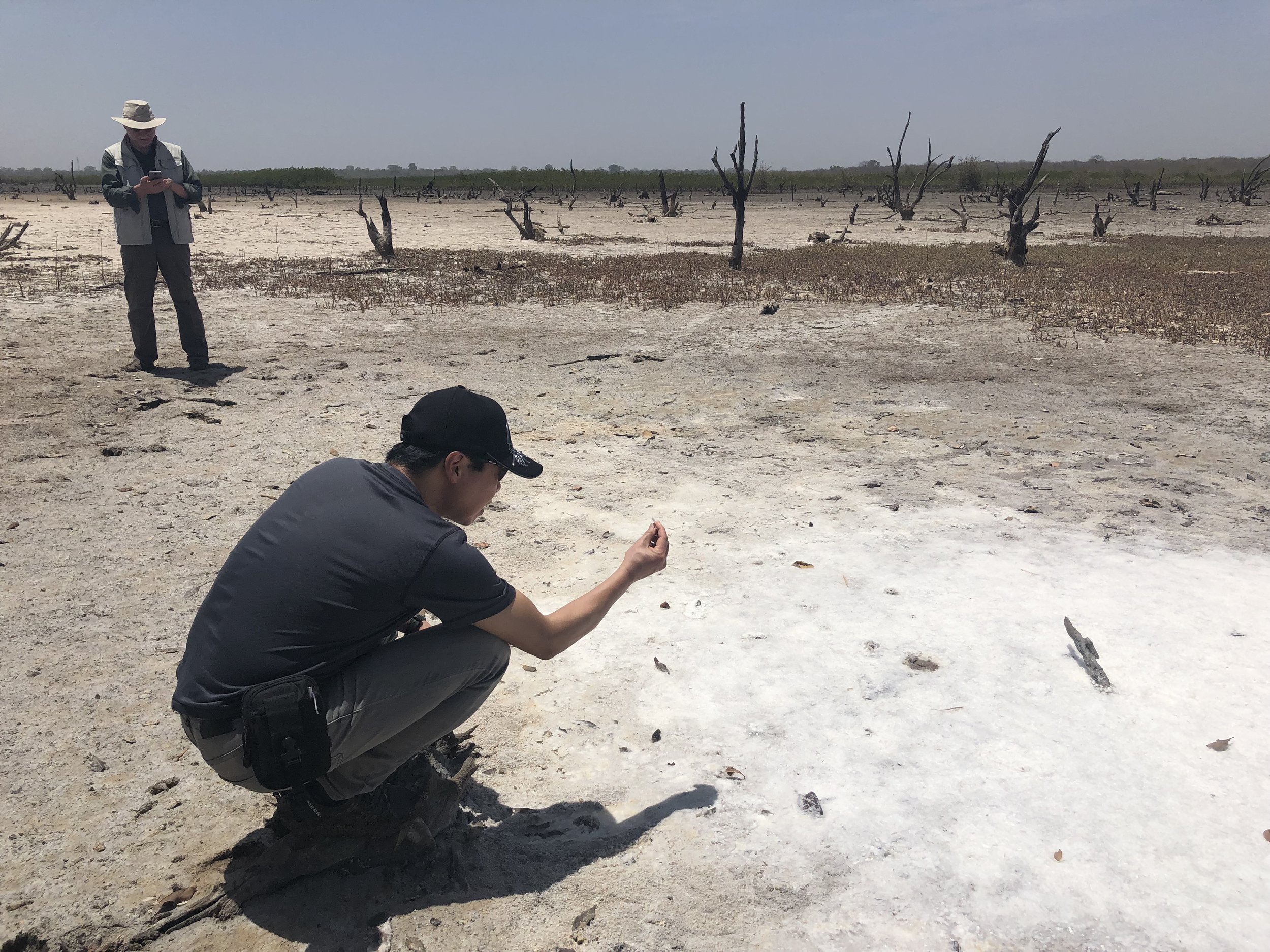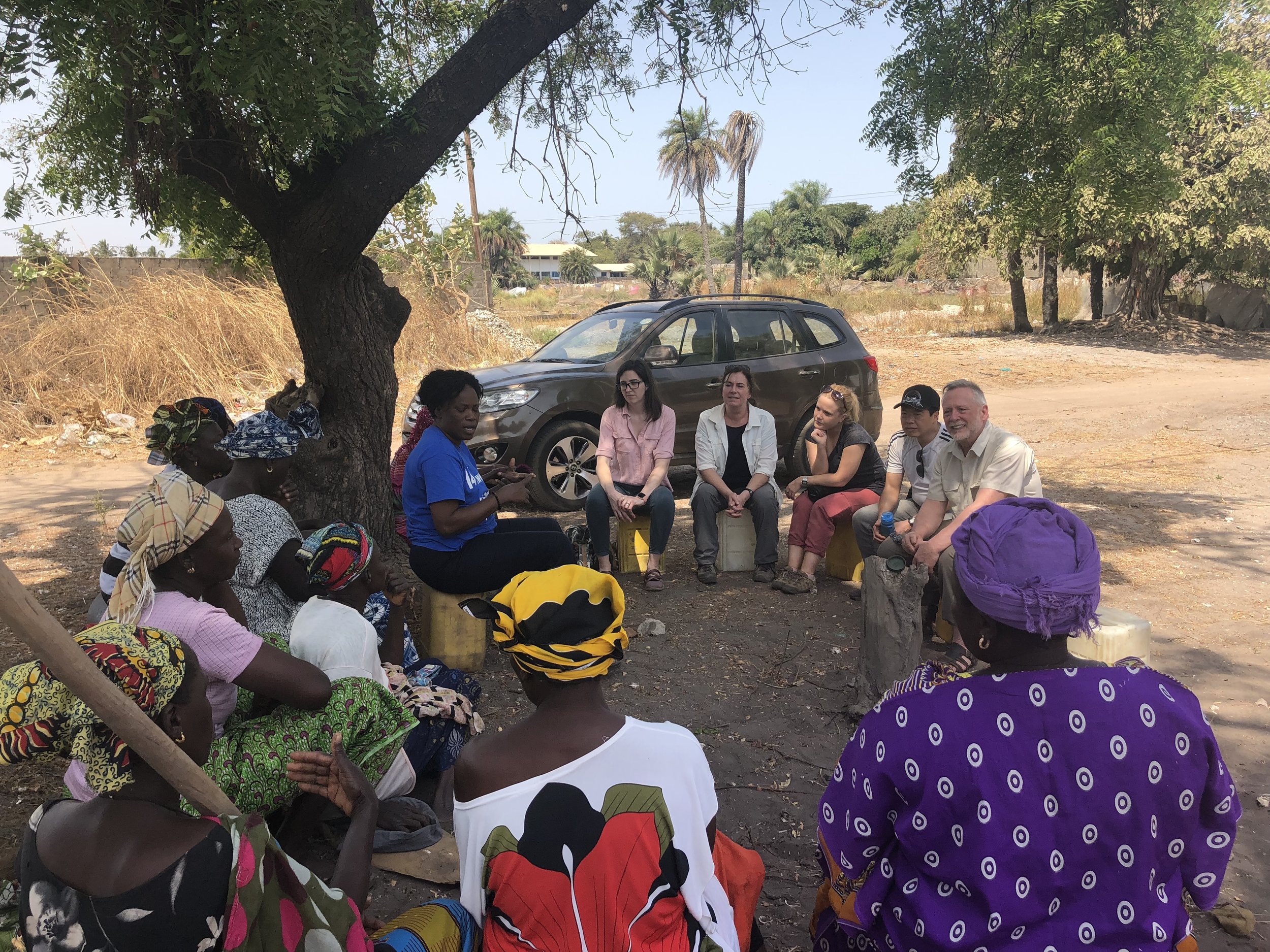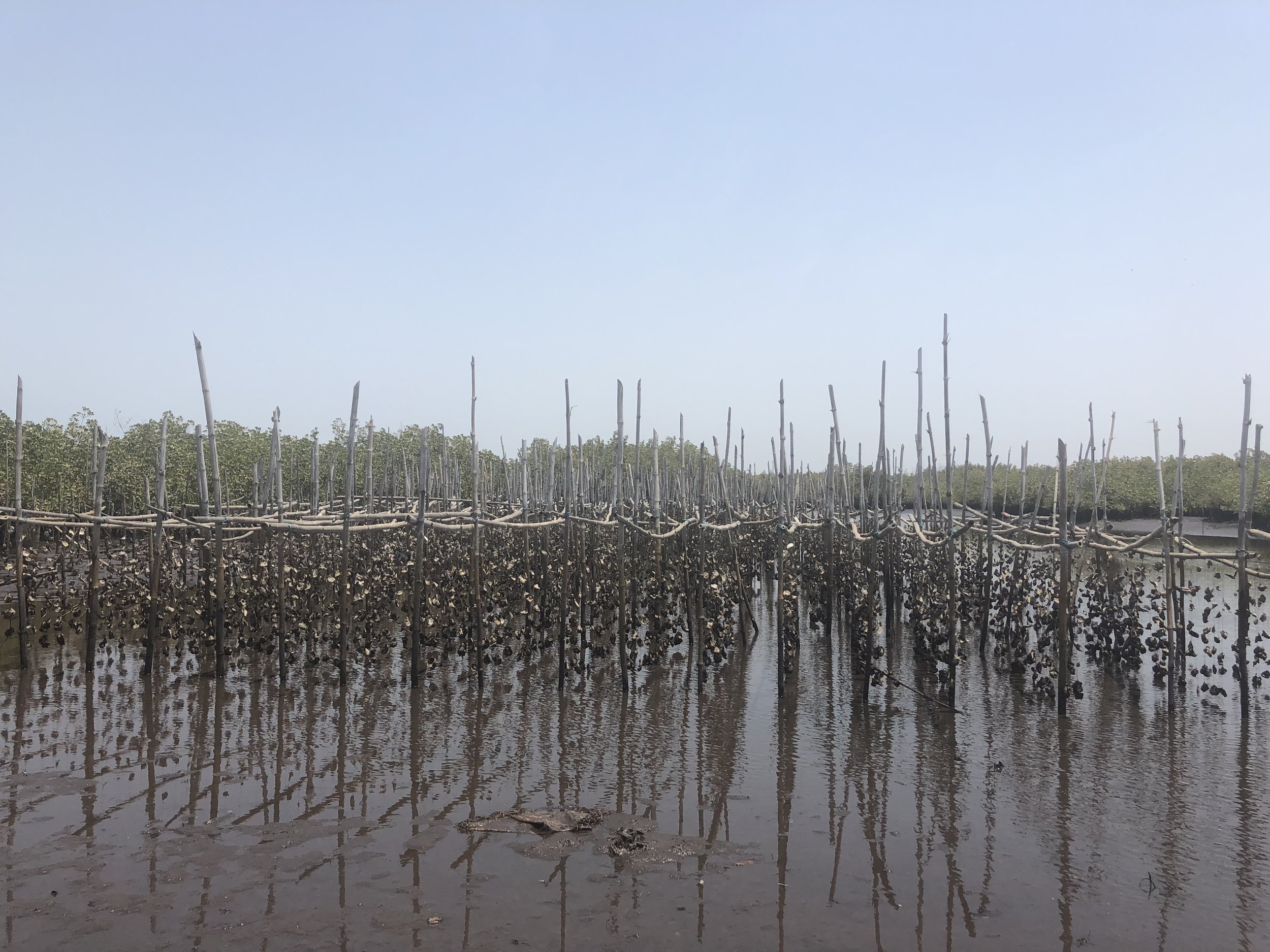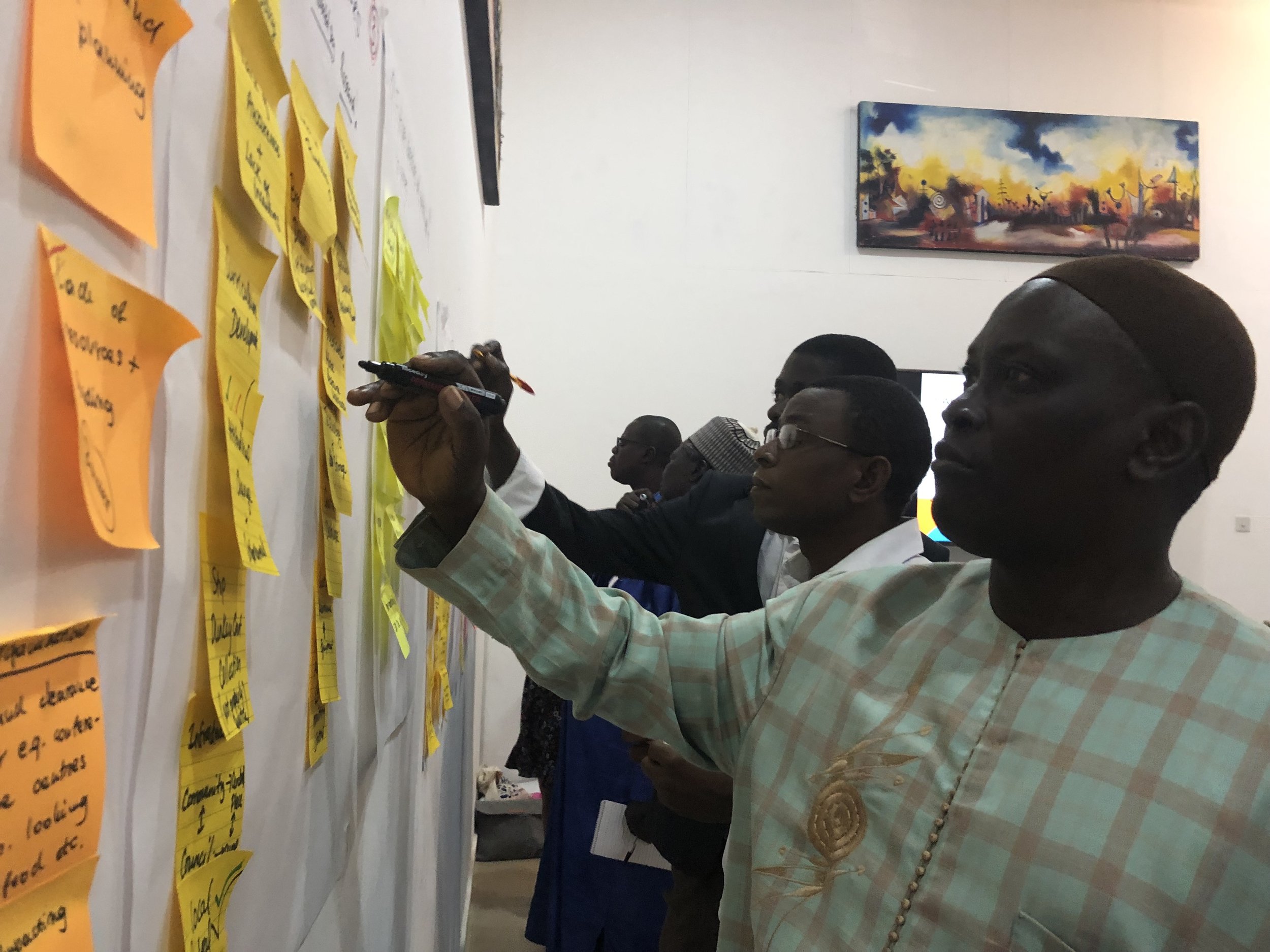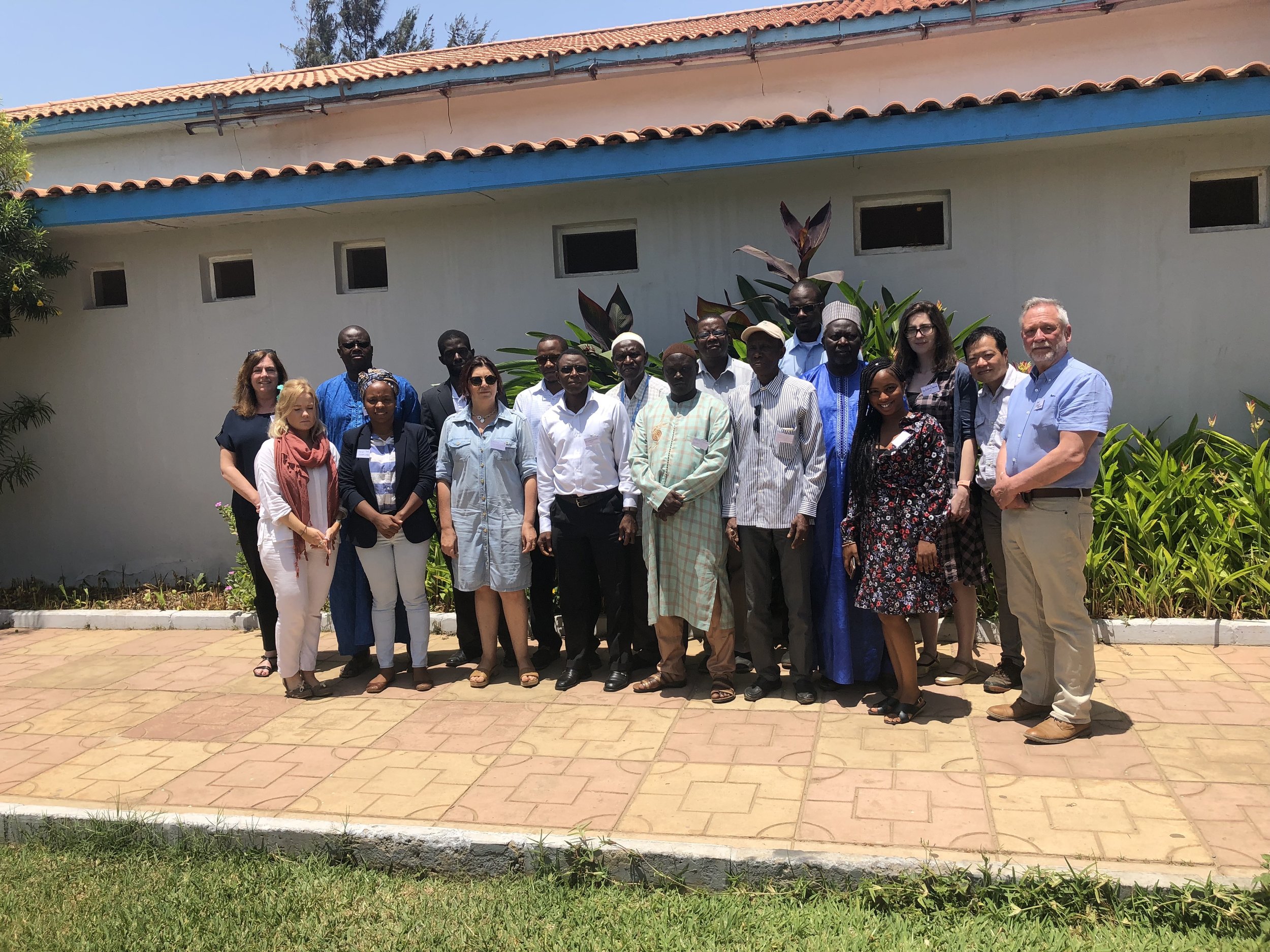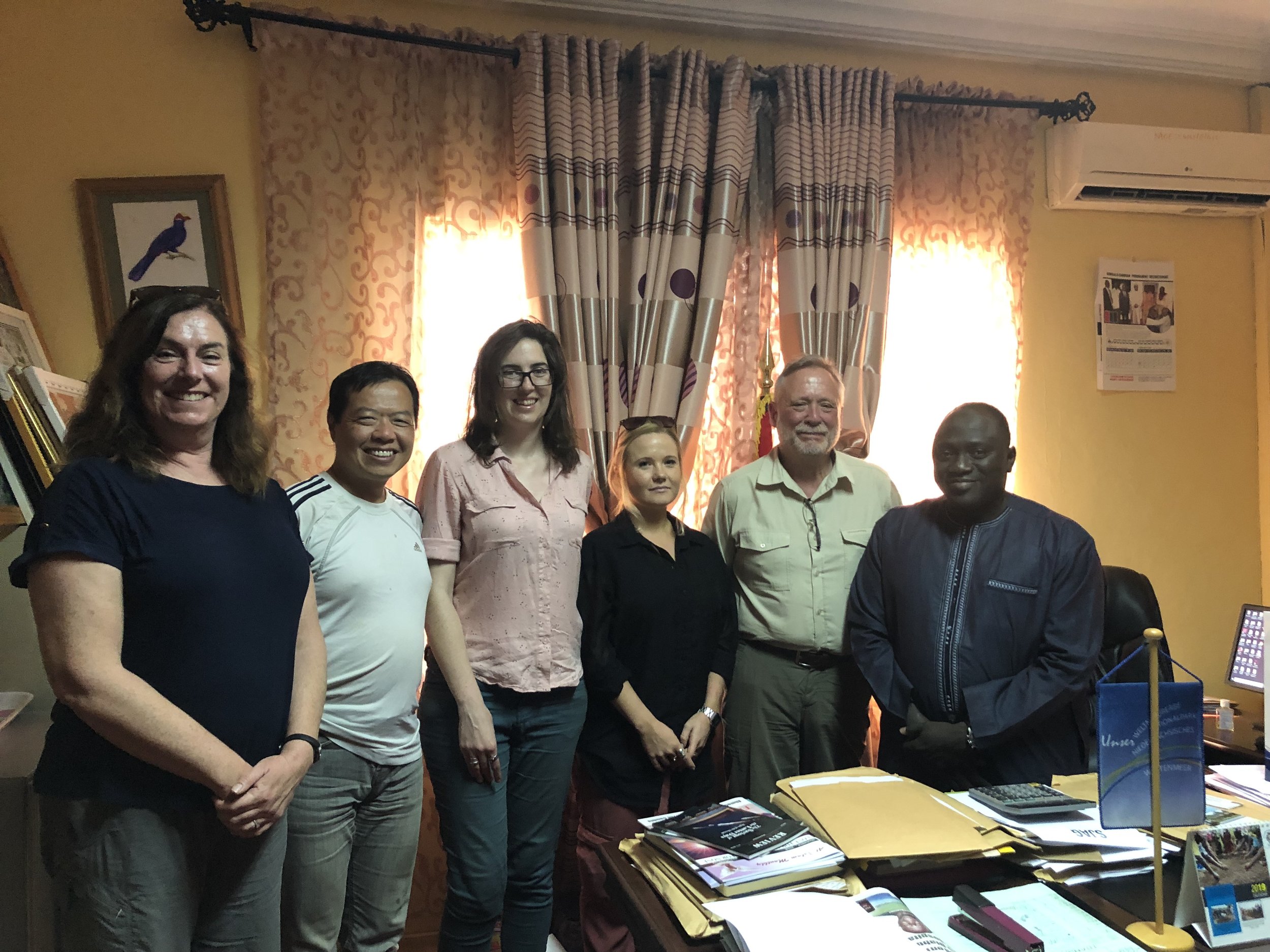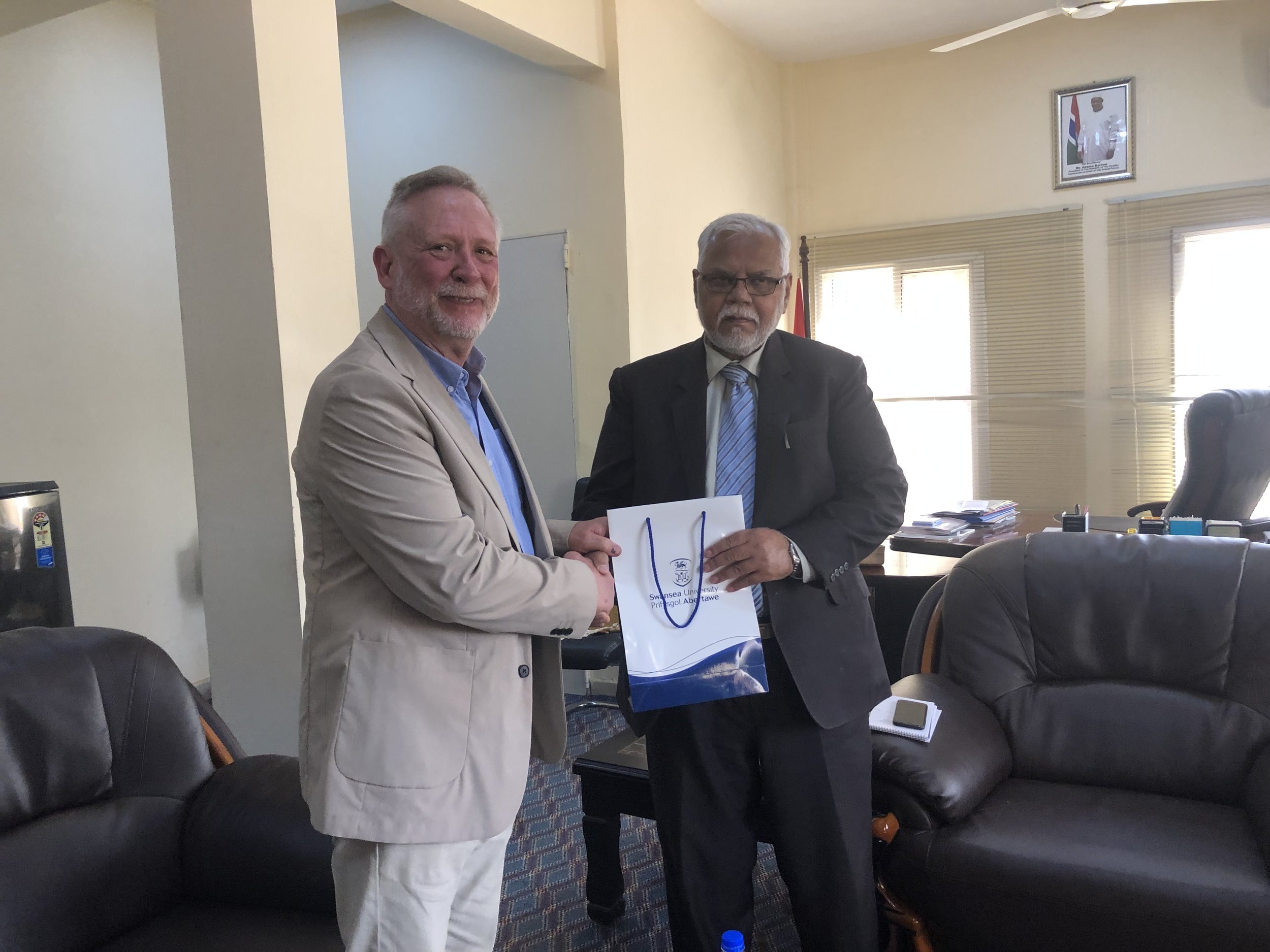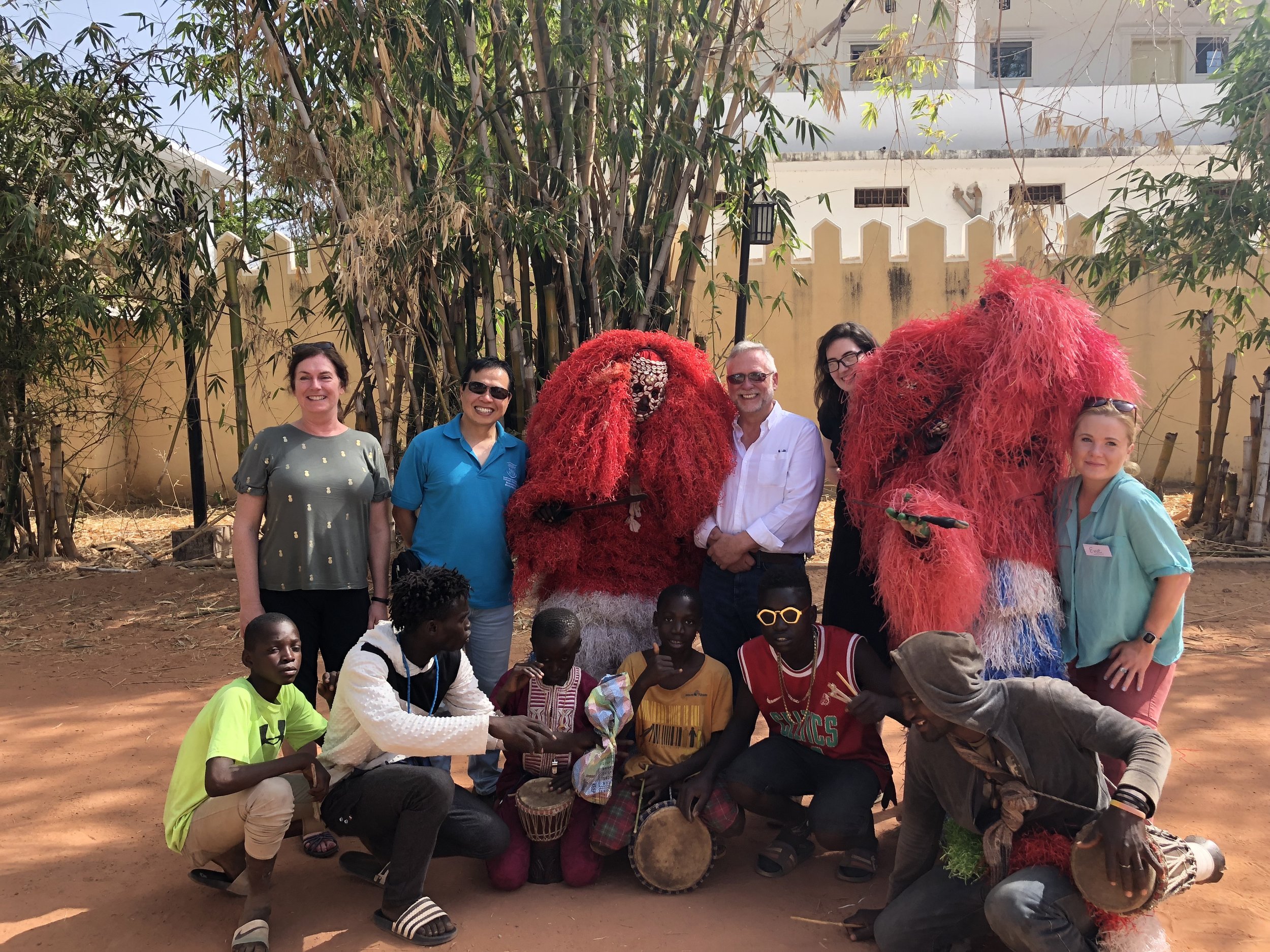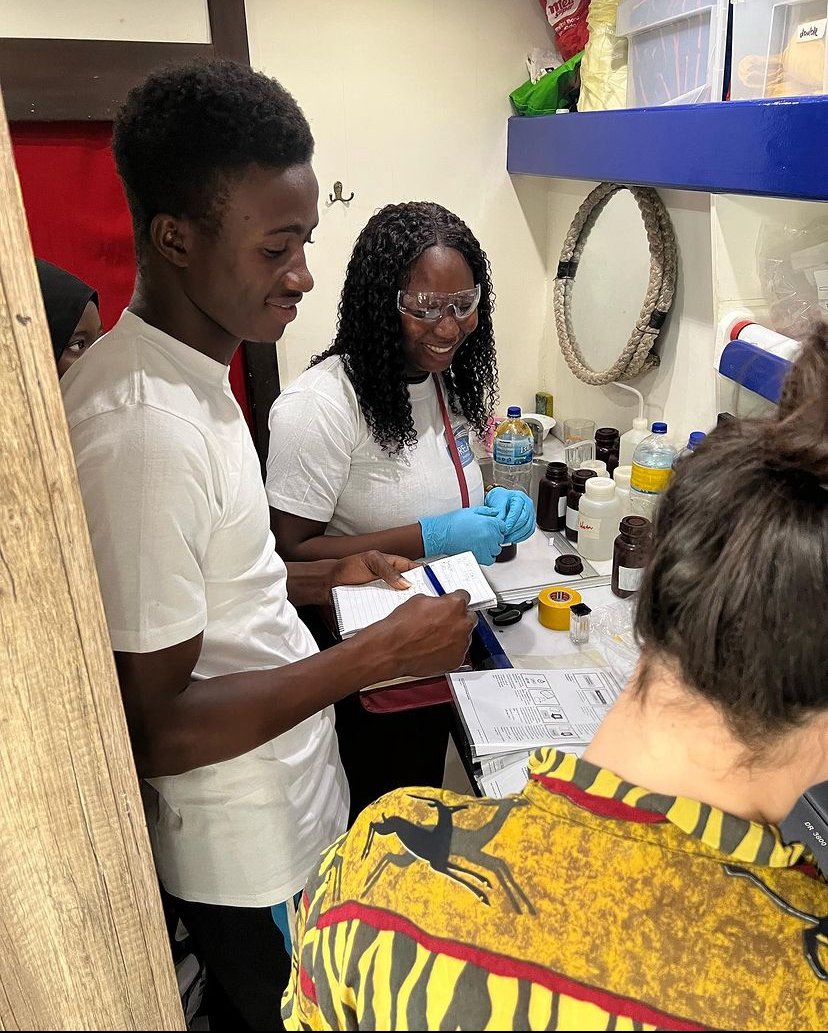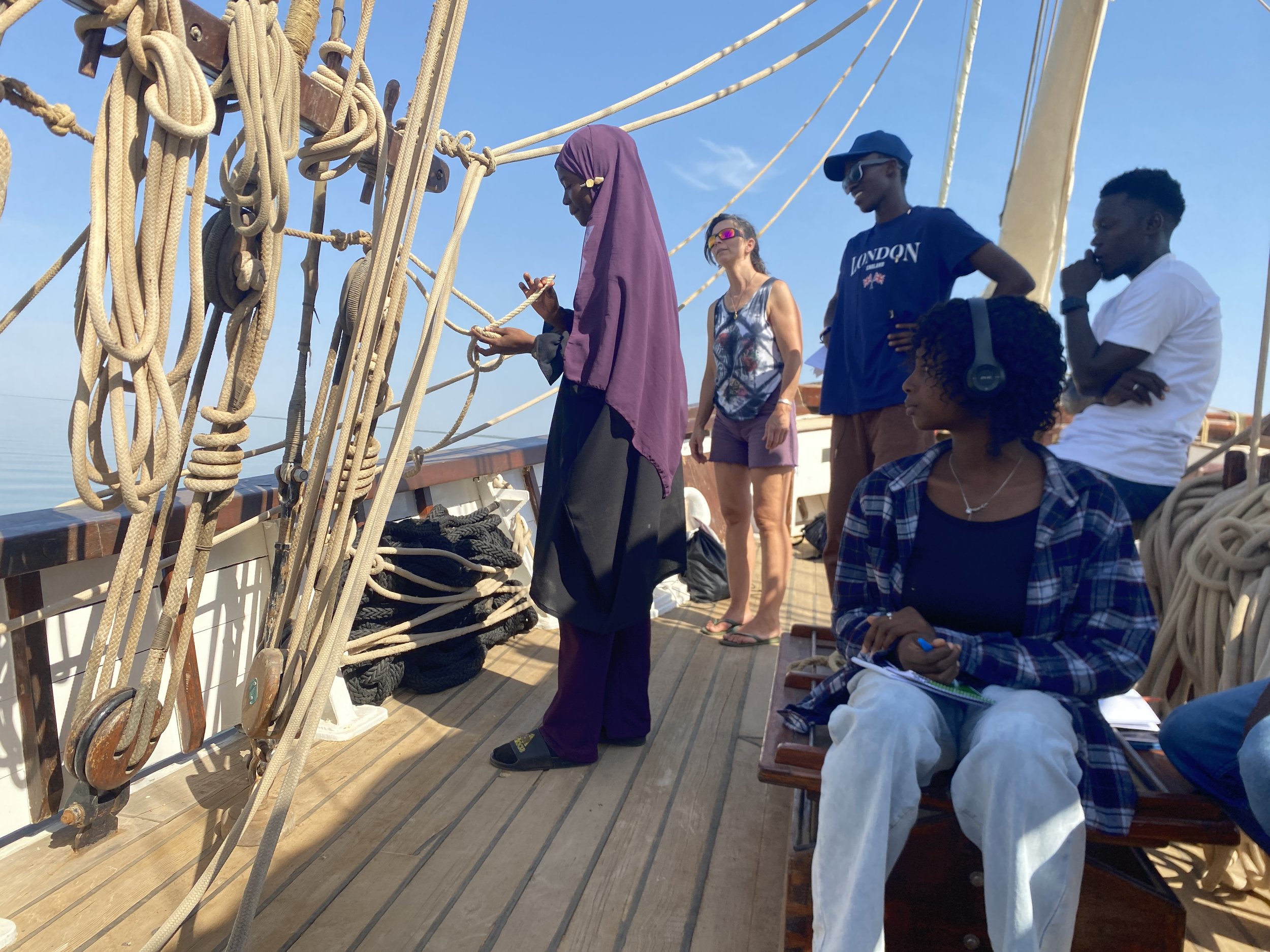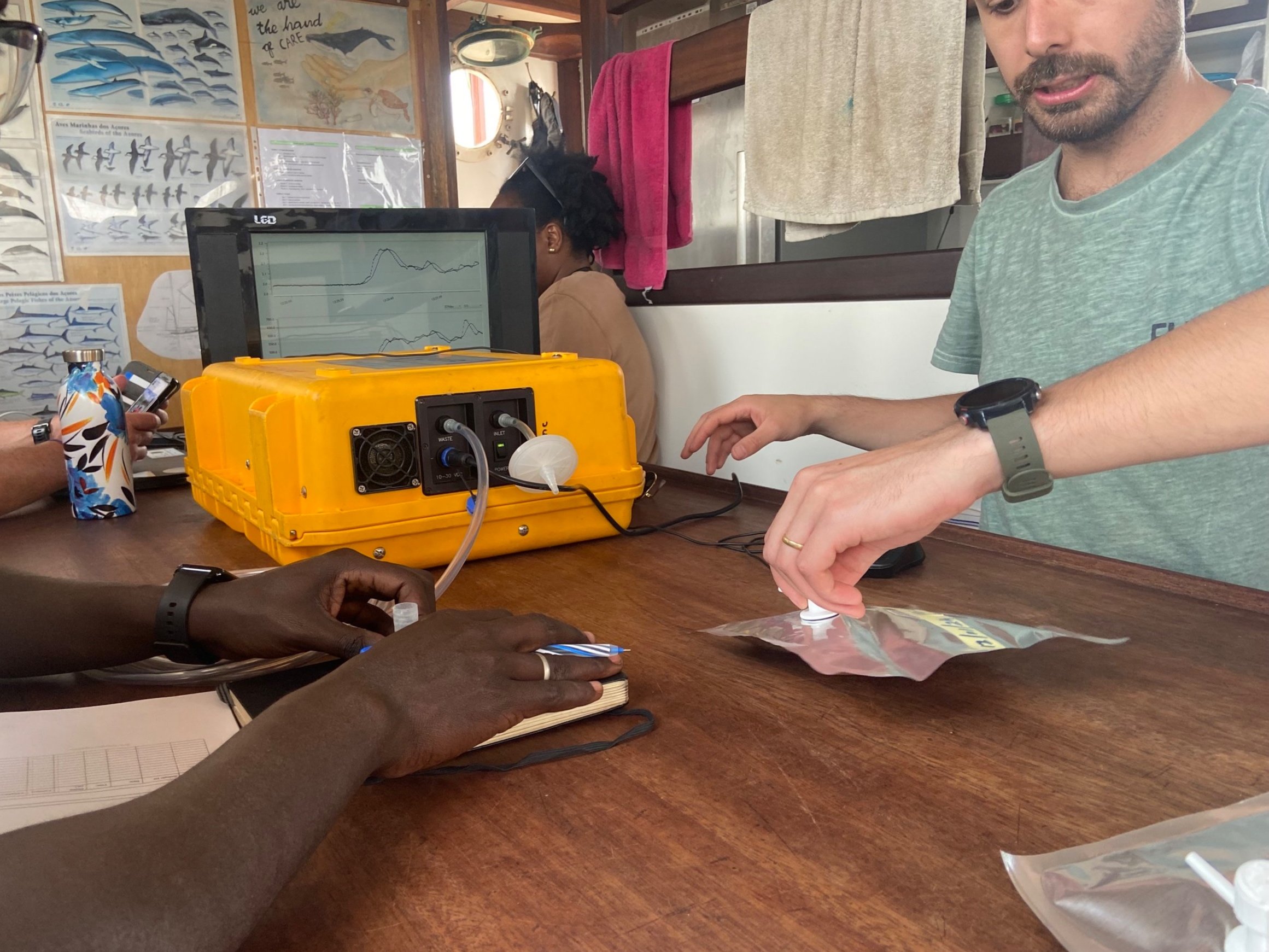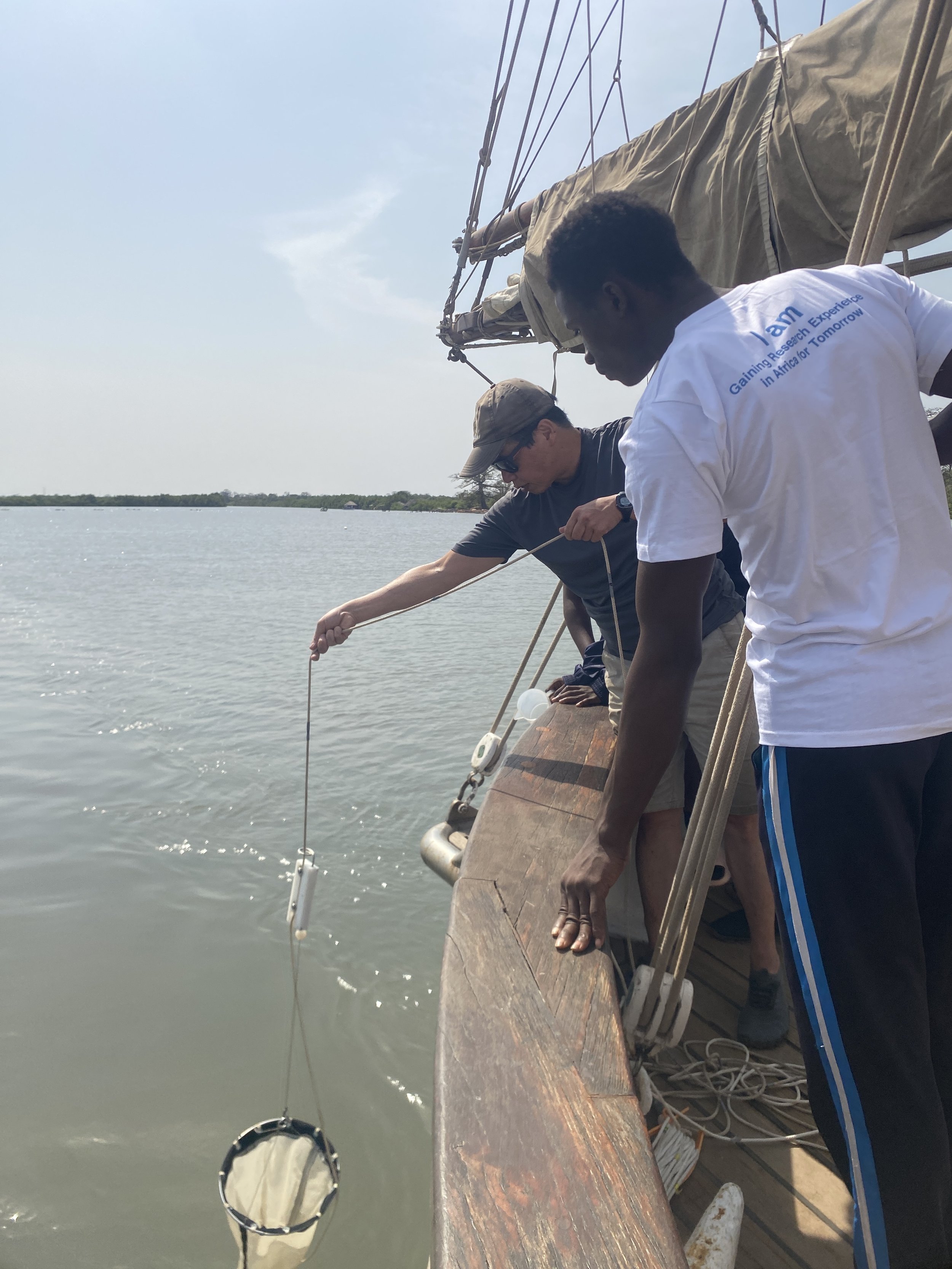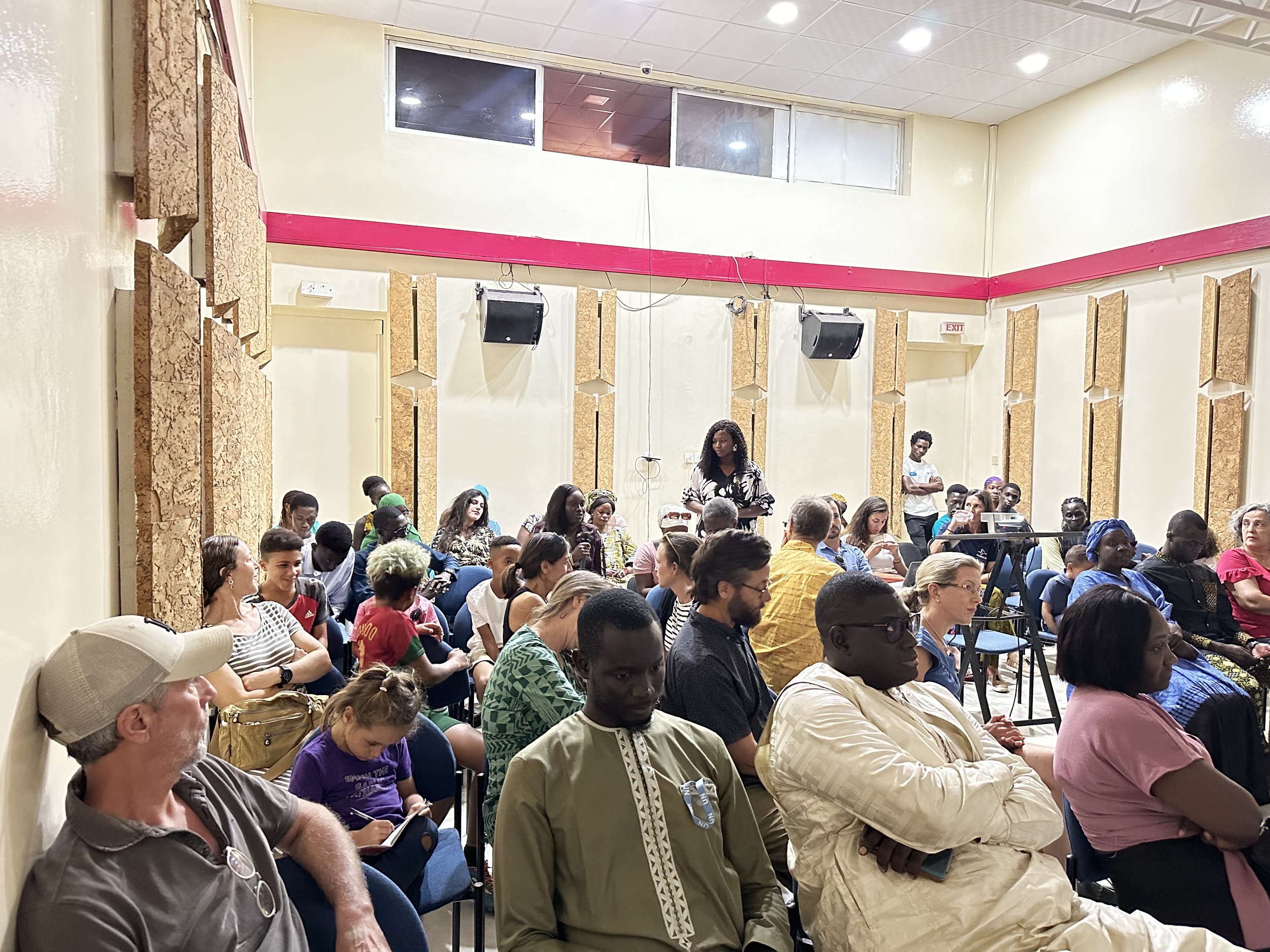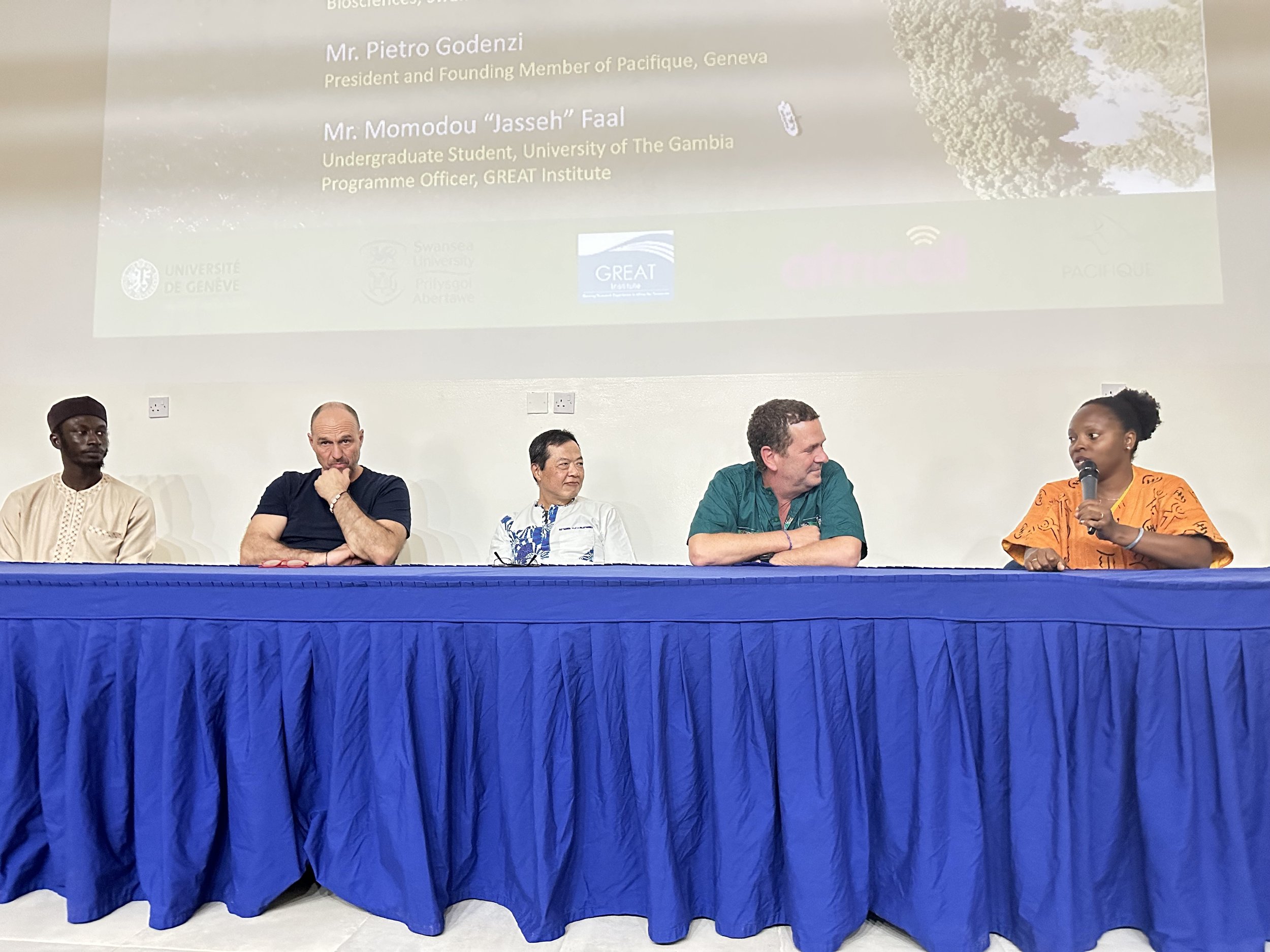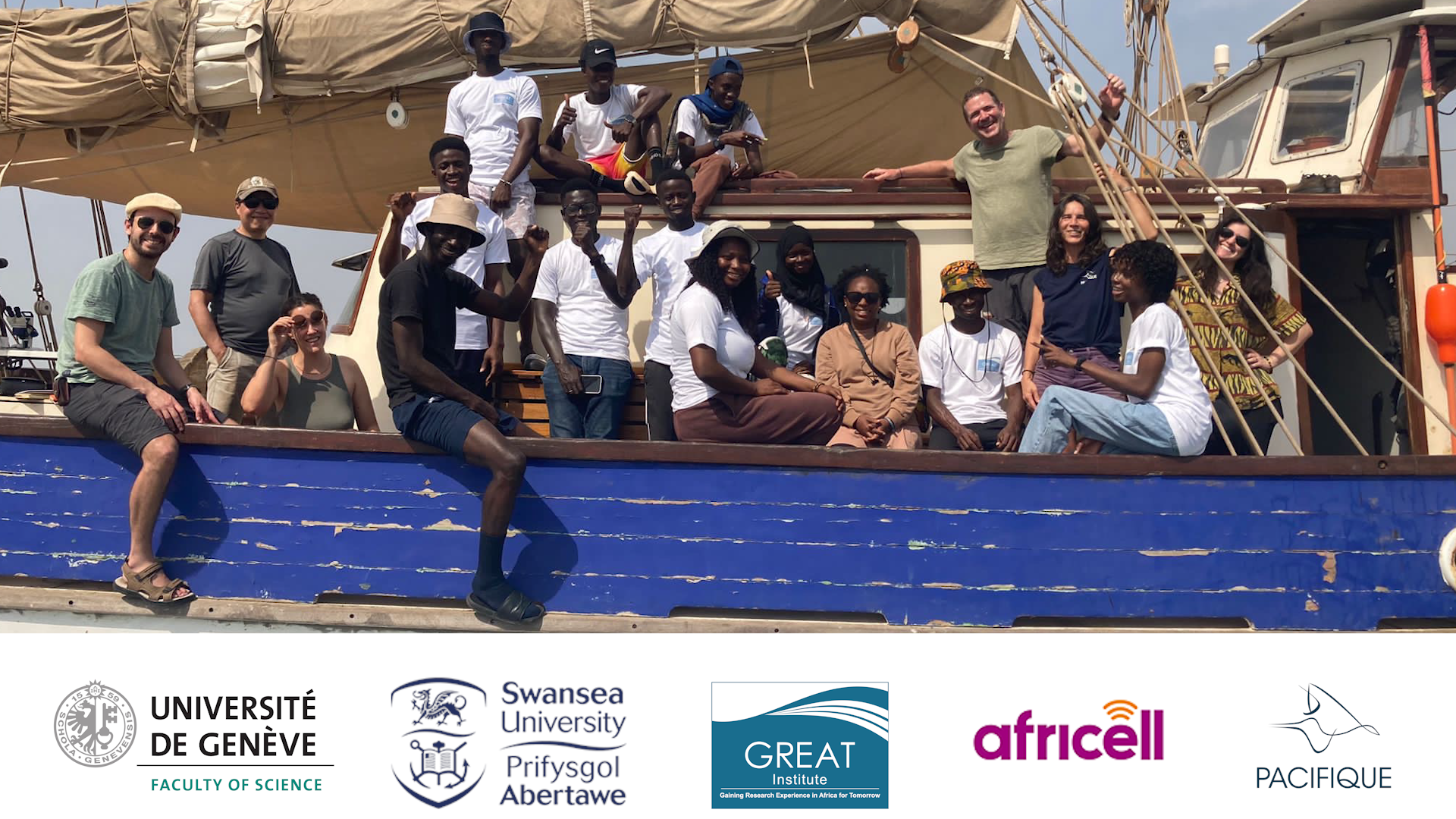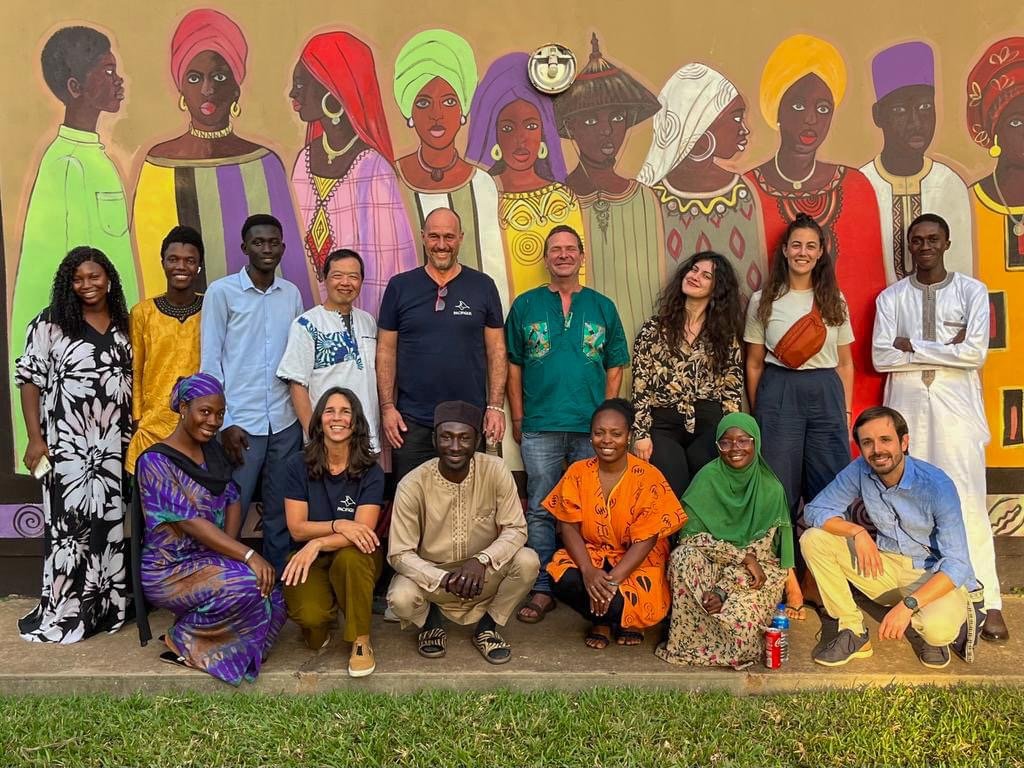Our Research
The research at GREAT Institute is focuses on aquatic and coastal ecosystems, gathering critical climate data and information. This hands-on approach enables students and early career professionals to deepen their knowledge of the River Gambia and coastal issues through immersive outdoor fieldwork. This encourages participants to advocate for vulnerable coastal communities that are affected by climate change in The Gambia.
We measure the below parameters to understand more about the River Gambia and the Atlantic Ocean:
Freshwater Inputs
Nutrients and Sediments
Plankton, Benthos, Finfish & Shellfish
Submerged Aquatic Vegetation (SAVs) & Mangroves
Water Quality
We use the below tools to determine the rate of erosion:
Simple optical measures using rods, measuring tapes, etc.
Field leveling using optical and/or levelers
Measurements using satellite positioning with GPS or DGPS tools
Drones
CURRENT Research Projects
Biodiversity, Livelihoods, and Understanding of Ecosystems Mangrove (BLUEMap) Project
PI: Maiyai Taal Hocheimy
Co PIs: Margaret Owuor, Angelo Bernardino, Yvonne Githiora, and Betty Jahateh
We are excited to announce our new scientific expeditions in partnership with Fondation Pacifique, University of Geneva, Texas A&M - Corpus Christi, University of Bern, and the Federal University of Espirito Santo. The BLUEMap project is a science-led, solutions-focused expedition assessing the ecological health, carbon storage, and socio-economic value of The Gambia’s mangrove ecosystems, which span ~100 km from the Atlantic coast to the estuarine parts of the River Gambia. These mangroves offer vital ecosystem services- shoreline protection, biodiversity habitat, carbon sequestration, food, timber, recreation, and medicinal resources – but are increasingly threatened by sea-level rise, land-use change, and upstream hydrological shifts.
The first expedition will be from 13-31 October 2025, and we are excited to recruit 20 science students from the University of The Gambia to participate in the first expedition. Follow our website and social media platforms for up-to-date information.
Gambia Environmental Monitoring System (GEMS) Programme
PI: Maiyai Taal Hocheimy
Proper understanding and conservation of the River Gambia requires active participation from the local communities in surveying and monitoring, and ultimately their support and involvement in formulating and implementing meaningful management practices. Therefore, the GEMS project collects environmental and biodiversity data at various sites along the River Gambia. This programme has established the first comprehensive environmental and biodiversity dataset plus the local capacity to support long-term socio-ecological research, development, and management in The Gambia.
West Africa Continuous Environmental Monitoring Programme (WACEM) Programme
PI: Maiyai Taal Hocheimy
The programme, funded through Swansea University Internal GCRF Fund, is to build local capacity and collect essential data about the Tanbi Wetland Complex (TWC). Since the start of the programme in 2019, the programme has developed solutions for long-term sustainable practices of the region’s natural resources in the TWC.
The outputs of the WACEM programme have:
Produced essential and up-to-date environmental data to support the region’s research and management of natural resources
Produced scientific data to support ongoing efforts in mangrove reforestation
Enabled The Gambia to apply for international REDD+ carbon funding to support sustainable community livelihoods, food and water security and mangrove conservation and restoration programmes
Built capacity and empowered local communities to tackle environmental issues
Supported evidence-based management and policy and sustainable exploitation of natural capital
Created a platform to network and grow West Africa’s environmental science community
SAIL FOR MANGROVES - THE GAMBIA
The Sail for Mangroves Expedition, that was launched in January of 2023 is a new programme with cooperation between Pacifique Foundation, University of Geneva (UNIGE), Swansea University, and the GREAT Institute. In January 2024, the expedition was done on board the floating lab Fleur de Passion, a 33- metre ketch built of wood and steel flying the Swiss flag.
The purpose of the expedition is to train Gambian science students on coastal and marine research to assess basic ecological factors - the physical, chemical, and biological conditions of the River Gambia, and expose students to the vast biodiversity along various tributaries (locally called “bolong”).
The 75 km scientific mission upstream to Kemoto en route to Bao Bolong and Bintang Bolong, measured atmospheric, aquatic, and sediment environments, including concentrations of carbon dioxide (CO2) and methane (CH4). The 18 science students learned about life onboard a sailing boat, including learning everyday sailing terms for safety onboard Fleur de Passion.
After the Sailing for Mangroves Expedition in 2023, a documentary film was produced to capture the highlights of the expedition’s first year from data collection to data analysis.
The film was produced and edited by Pascal Baumgartner.
PROMOTING CONSERVATION IN THE GAMBIA (PCG)
Promoting Conservation in The Gambia (PCG) through the establishment of a Coastal Citizen Science Programme was developed specifically to facilitate sustainable conservation efforts to protect the prime mangrove forest along the River Gambia and its tributaries. The River Gambia is low-lying, making it vulnerable to saltwater intrusion causing biodiversity loss, mangrove dieback, food insecurity, and alteration in the river’s water quality.
The citizen science programme presents a collaborative approach to enhance community engagement and build on an expanding network of citizen scientists, research, and practice to contribute to marine conservation. The PCG programme consist of Community Science Leaders (CSLs) who are students from the University of The Gambia, Community Focal Points (CFPs) who are oyster harvesters belonging to the TRY Oyster Women’s Association, and Community-based Organizations (CBOs) in a transdisciplinary research approach to aquatic research and conservation. The project continues to train and build local capacity to actively participate in routine environmental monitoring of six tributaries along River Gambia. The goal of this programme is to develop participatory methods to monitor and rehabilitate degraded mangrove ecosystems to promote conservation along the river Gambia and its tributaries. The programme was launched in January 2023.
At the end of The PCG Project, a documentary was filmed to highlight the project's remarkable efforts in The Gambia.
The video emphasizes the steps taken to protect and sustain the ecosystem, particularly through water quality assessments that examine the impact of saltwater intrusion on both terrestrial and aquatic environments in The Gambia.
Watch the documentary video below!
RREMEDY FIELD STUDY COURSE
PI: Betty Jahateh
GREAT Institute launched a field study course in July 2022 called Research, Restoration, and Education on Mangrove Ecosystems with Dynamic Youths (RREMEDY), funded by Sustainable Ocean Alliance. The course trains students from the University of The Gambia on research and presentation skills, watershed management, environmental monitoring, mangrove ecology, and above ground carbon quantification. This field study course takes students to two sites in the West Coast Region and Lower River Region in The Gambia.
In 2022, alongside students and community members, 2500 m2 of mangrove forest were restored. The team at GREAT Institute will continue to monitor physicochemical parameters of the river, while also assessing the growth and survival rate of the planted mangroves.
PREVIOUSLY FUNDED PROGRAMMES AND ACTIVITIES
Planetary Health The Gambia (PHG) Programme
International PI: Dr. Ashling Devine
Local PI: Maiyai Taal Hocheimy
Planetary Health emphasises the intricate link between the health of human civilization and the state of the natural systems on which it depends. The COVID pandemic is disproportionally impacting the well-being of low-income and marginalised populations. The global pandemic has caused changes in Gambian’s livelihood and the environment:
Artisanal fishing provides the main protein source for Gambians, but fishing activities have decreased sharply. This negatively impacts people’s nutrition and health but may allow the aquatic ecosystem and fish stocks to recuperate. Building on the pre-COVID environmental and ecological data that has been collected, and the community network that has been established, PHG investigates the socio-economic impact on artisanal fisheries.
The outputs of PHG:
Collect data on fishing efforts, landing, and sales to assess post-COVID impacts on food supply and security.
Conduct surveys in local communities to assess post-COVID impacts on people’s physical well-being (e.g. food intake, nutrition, medical care) and social well-being (e.g. access to education, social interactions).
Conduct environmental and biological surveys (ground and aerial) to assess post-COVID impacts on environmental quality (land, water, and air) and wildlife (terrestrial and aquatic).
Bridge Spark Fund
January 2020 - December 2020
Project: Diversifying blue livelihoods through holistic Ocean Farming (BSF)
PI: Betty Jahateh
This blue livelihoods initiative provides a holistic solution to the challenge of “Transforming the global food system for health and sustainability.” This project introduces diversified smallholder aquaculture to low-income fishing communities, piloting this globally scalable model in Kenya, with The Gambia as an initial scaling case. Smallholder aquaculture will provide new income, transform nutrition, purify water, nurse fisheries, and biodiversity, and reduce emissions. Smallholder aquaculture will primarily include sandfish (sea cucumber) and seaweed, exploring other aquaculture options such as oysters and saltwater tolerant tilapia, accompanied by interventions to improve management and incomes for reef fisheries. The project will support four villages in Kenya and two in The Gambia. In Kenya, proposed villages including Kibuyuni, Gazi, Mkwiro, Msambweni, and Msumarini, are pending scoping results. In The Gambia, villages were selected from the Tanbi Wetland Complex (TWC).
*Due to COVID-19, the project has been shifted to identifying policies that support blue livelihoods.
Swansea University GCRF Support Fund
January 2019 to July 2019
Project: Enhancing Coastal Ecosystems in The Gambia
PI: Maiyai Taal Hocheimy
The Swansea University GCRF fund supported the development of new relationships with the GREAT Institute and other local partners through research that has the aim to develop a practical and sustainable future for all people in The Gambia.
This project brought together a network of interdisciplinary and multi-sector stakeholders to design a rigorous research program to examine the natural capital value of The Gambia’s coastal ecosystems through quantifying ecosystem services and carbon sequestration (carbon crediting) to identify ways to protect/enhance them in order to achieve positive outcomes in climate change mitigation, livelihood, food security, and blue carbon economy.
Five scientists from Swansea University visited The Gambia in April 2019 to develop a compelling interdisciplinary GCRF project of research in relation to climate change mitigation and carbon sequestration in coastal ecosystems. The visit included field work, meetings with potential stakeholders, and a training workshop. Support was given from critical stakeholders such as the British High Commission of The Gambia, the United Nations Development Programme (UNDP), the Ministry of Environment, the Department of Parks and Wildlife, the Department of Water Resources, Sankandi Youth Development, TRY Oyster and Glensol AF.
Student volunteers were trained to gather baseline data in support of the upcoming GCRF proposal. A total of 81 students attending the University of The Gambia applied for the training workshop. A total of 32 individuals were tested and interviewed and 15 applicants were selected to be trained by the visiting scientists to measure carbon sequestration and storage in mangrove forests.
Left to Right: Dr. Aisling Devine, Ewelina Gruchala, Maiyai Hocheimy, Dr. Cindy Froyd, Prof. Kam Tang and Prof. Geoff Proffitt
